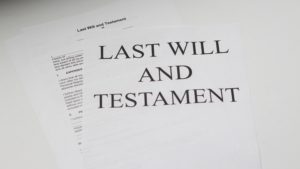
One of the most important decisions to make when estate planning is deciding who will inherit your assets.
Your last will and testament will include these decisions in the form of bequests.
So what does bequest mean in a will? Generally speaking, a bequest is how you instruct who gets what when you die.
There are many different kinds of bequests, which we’ll explain in more detail below.
What Is a Bequest in a Will in Texas?
A bequest in a will is the legal way of gifting someone money or property after your death.
Bequests can be made to people, organizations, institutions, trusts, or foundations. However, you cannot “bequeath” property to an animal (although you can instruct that a sum of money be used for an animal’s care). When you bequeath property to a person or entity, they become a beneficiary and obtain certain rights.
Types of Bequests
There are many kinds of bequests you can make in a will. Bequests can be simple or quite complex, and they differ based on the property you’re gifting and the type of beneficiary.
Specific Bequest
As the name insinuates, a specific bequest in a will is a gift of a specific asset to a specific person or entity. The asset can be either property or money. Here are a few examples:
- “I bequeath my Swarovski crystal rose figurine to my niece, Allison Turner.”
- “I bequeath the property located at 123 Main Street, Dallas, Texas, to my son Benjamin Smith.”
The more details you provide when making a specific bequest, the better. This eliminates confusion and ensures that your intentions are followed.
General Bequest
A general bequest is a monetary gift to a specific person or entity. Here’s an example of a general bequest in a will: “I bequeath $10,000 to my son, John Smith.” The gift is paid out of the general pool of assets in the estate, not one particular asset, such as a bank account.
Demonstrative Bequest
Unlike a general bequest, where the source of the gift is irrelevant, a demonstrative bequest is a gift, usually of money, from a particular source.
For example, if you want to leave $15,000 from your savings account to your sister, those specifications would be made through a demonstrative bequest. Another example is “100 shares of my Apple stock.”
Percentage Bequest
With a percentage bequest, you can proportionally divide your estate among beneficiaries, as opposed to leaving them a dollar amount. Here’s an example of a percentage bequest: “I bequeath 25% of my estate equally among my four children.”
If you’re concerned that the value of your estate will fluctuate or certain assets may not be in your estate when you die, a percentage bequest might be appropriate.
Charitable Bequest
Charitable bequests are gifts of property to a qualifying charity, non-profit organization, trust, or foundation. With a charitable bequest, you can satisfy your philanthropic goals and take advantage of the tax benefits.
Residuary Bequest
After satisfying all the bequests in your will, you may have leftover assets. This is known as your residuary estate.
You can choose what happens to this pot of money and property by making a residuary bequest to a specific beneficiary. An example of this is: “I give all the remainder of my estate to the local ASPCA chapter.”
Contingency Bequest
A contingent bequest is the transfer of property that’s only made if a certain condition is met.
Here’s an example of a contingent bequest: “I hereby bequeath $50,000 to my niece Lucy, but only on the condition she graduates from a four-year university or technical college by the age of 23.”
You can also structure a contingent bequest so that it takes effect only if the primary beneficiary dies before you. For example: “If neither my spouse nor any of my descendants survive me, I give the entire proceeds of my brokerage account to the Texas Children’s Hospital.”
What Happens to Property Not Bequeathed Under a Will?
As mentioned above, you can make a residuary bequest and specify who gets anything remaining in your estate. If you do not specify what happens to your residuary estate, Texas intestate succession law decides for you.
Under the laws of intestacy, your leftover assets will go to your closest living relatives. Depending on who’s still alive at your death, the laws become more complex, particularly for blended families.
If you do not bequeath all your assets under your will, there may be unintended consequences. For example, it’s entirely possible for a distant relative to inherit remaining assets if you don’t provide specific instructions otherwise via bequests.
Contact the Estate Planning Attorneys at Massingill
Life is complicated, but estate planning doesn’t have to be. At Massingill, we simplify and explain legal concepts, so our clients feel confident in their decisions.
We take the time to learn every detail about your assets, your family, your wishes, and your dream legacy. When you work with our estate planning attorneys, you’ll receive a personalized, unique, and comprehensive estate plan.
Our quality of work speaks for itself and continually earns us five-star ratings on Google.
If you live in any of the greater Austin, Texas areas, contact us to schedule an appointment. Let’s start planning your legacy today.

